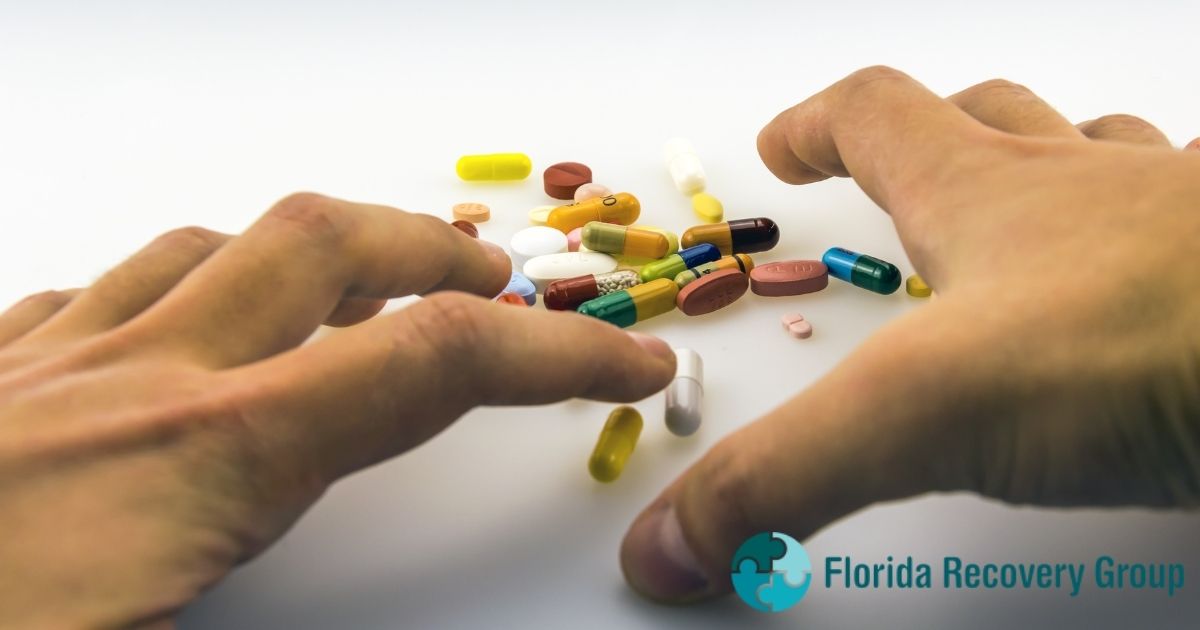
19 Oct 7 Signs of Stimulant Addiction
Stimulant is a broad term referring to a variety of drugs that increase activity in the central nervous system and the body. Often referred to as psychostimulants or uppers, stimulant drugs are known to cause pleasurable, invigorating, and sympathomimetic effects. However, individuals who frequently use these substances face a high risk of developing a stimulant addiction. Stimulants may be prescribed by a doctor or manufactured and dispensed illegally on the street.
If you are concerned that a friend or loved one is struggling with stimulant addiction, it is helpful to be aware of the signs and symptoms of stimulant abuse. More importantly, if you or someone you know is addicted to stimulants, you should seek help from a drug rehab near you.
What are Stimulants?
Stimulants are drugs that cause users to experience an increase in mental alertness. As a result, individuals who abuse stimulants experience a “high” that consists of increased energy levels, renewed confidence, enhanced focus, and concentration. While the effects of stimulants may be pleasant on a short-term basis, frequent and long-term abuse of these substances often causes an array of adverse effects.
![]()
Historically, stimulants were prescribed for the treatment of asthma, obesity, various neurological disorders, and certain respiratory issues. However, advances in medicine have revealed the dangers of stimulant medications, causing the drugs to be prescribed less frequently. Today, stimulants are prescribed for mental health disorders such as ADHD, hyperactivity disorders, and narcolepsy. Unfortunately, stimulant abuse has become extremely prevalent in America, causing these drugs to be easily accessible on the street.
Examples of commonly abused stimulants include:
- Ecstasy
- Cocaine
- Crack
- Amphetamines
- Methamphetamines
- Prescription stimulants (Adderall, Concerta, Dexedrine, Ritalin, Vyvanse)
Signs of Stimulant Addiction
If you or a loved one frequently abuse stimulants, it may be time to consider attending a professional addiction treatment program. However, if you are unsure whether you or a loved one are addicted to stimulants, consider the following 7 signs of stimulant addiction.
1. Cravings for Stimulant Drugs
Individuals who are addicted to stimulants will experience intense cravings to continue abusing the substance. This happens because the user becomes accustomed to the effects that stimulants provide, causing them to feel as if they cannot function without the substances. As an individual progresses in their addiction to stimulants, their cravings will become more intense and frequent.
2. Lifestyle Changes
If an individual is addicted to stimulants, their lifestyle will begin to change to compensate for their addiction. Common examples of lifestyle changes indicative of stimulant addiction include:
- Isolation from friends and family
- Entering into new social groups that include other drug users
- Financial instability as a direct result of spending too much money on stimulant drugs
- Risk-taking behavior that was not displayed in the past
- Engaging in criminal activity to obtain drugs or the money to buy them
3. Failed Attempts to Quit Stimulant Abuse
Stimulant addiction includes physical and mental dependence. In other words, individuals addicted to stimulants will experience adverse physical and mental symptoms of withdrawal when they suddenly quit stimulant use. Dealing with the uncomfortable withdrawal symptoms associated with stimulant dependence, without professional medical attention, often causes individuals to relapse. This is what causes stimulant addicts to have a hard time quitting the usage of the substance.
4. Emotional Instability
When an individual uses stimulants, a rush of neurotransmitter chemicals enter the brain and travels to the brain’s central nervous system. When the brain experiences changes in neurotransmitters, individuals experience drastic emotional effects. Unfortunately, once a person is addicted, they typically experience episodes of depression, euphoria, and rage.
5. Signs of Severe Depression
Individuals addicted to stimulants often experience severe signs of depression. These symptoms increase as the individual’s addiction advances. Oftentimes, these bouts of depression become so severe that stimulant addicts struggle with suicidal ideation, self-harm, or even attempt suicide.
Signs of severe depression include:
- Feelings of guilt
- Feelings of shame
- An overwhelming sense of hopelessness and helplessness
- Self-harm
- Feelings of worthlessness
- Suicidal thoughts or behaviors
This sign of stimulant addiction is particularly concerning, as the threat of suicide is high. If you notice a friend or loved one displaying this symptom of stimulant abuse, it is important to contact addiction treatment professionals immediately.
6. Changes in Sleeping Patterns
Taking stimulant drugs often may cause individuals to stay awake for long periods of time. This sign of stimulant addiction is easy to spot, as losing sleep causes individuals to function on a lower level. If you are concerned about a loved one’s stimulant abuse and notice prolonged periods of awakeness, addiction is possible and likely.
7. A Lack of Emotional Response
Oftentimes, individuals who abuse stimulants over long periods of time experience a “short-circuit” in the brain. In other words, as chemicals begin to imbalance, the user’s behavior will become more erratic concerning their emotional responses. Known as the “flat affect”, stimulant addiction may cause an individual to display a lack of emotions. This may also be described as a catatonic state. Signs of the “flat affect” include staring off into space, lack of empathy or sympathy, and being unable to hold a conversation or properly interact with others.
Treatment for Stimulant Addiction
Stimulant addiction is a progressive and devastating disease that must be treated by substance abuse experts and medical professionals. To begin, individuals may undergo a medically-assisted detox program that helps patients to rid their bodies of unwanted substances. Next, individuals are recommended to attend inpatient drug rehab to heal from the lasting emotional and behavioral effects of addiction while learning healthy coping mechanisms to prevent relapse and promote long-term sobriety.
If you or a loved one are addicted to stimulants, the time to act is now. Contact Florida Recovery Group today to learn more about our drug and alcohol rehab programs in Delray Beach, FL.





